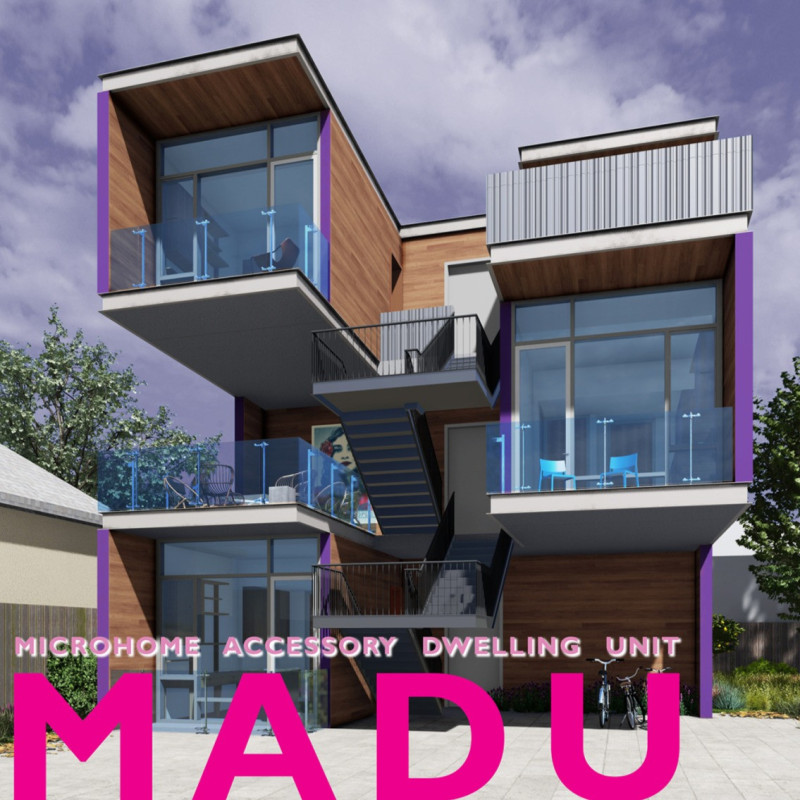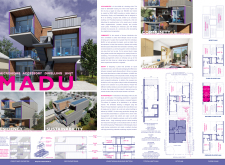5 key facts about this project
Community-Centric Design and Function
The MADU project emphasizes social connectivity and inclusivity. The spatial configuration features stacked micro-units that facilitate vertical living, maximizing floor area while minimizing the building's footprint. Shared communal areas, including a central courtyard, encourage interaction among residents, promoting a sense of belonging. The design incorporates flexible interiors that can adapt to individual lifestyle needs, further enhancing the functionality of each unit. Key architectural elements, such as large windows and sliding doors, enhance natural light and ventilation, addressing both comfort and energy efficiency.
Unique Approaches to Sustainability
A distinguishing feature of the MADU project is its commitment to sustainability through thoughtful material selection and building practices. The design utilizes durable wood and metal facades, paired with recycled materials where feasible, contributing to a reduced environmental impact. The inclusion of solar panels and green roofing systems reflects a focus on energy efficiency and resilience. These design elements not only support the building’s response to climate change but also enhance the overall quality of life for residents.
Innovative Use of Space
The MADU project exemplifies innovative spatial planning by stacking units vertically, thereby reducing land consumption without compromising livability. This vertical arrangement allows for an expanded community footprint while maintaining privacy for individual residents. The integration of multipurpose spaces within the design enables flexibility, allowing residents to personalize their living environments. Architectural details such as the communal courtyard and open living areas foster a connection to the outdoors, further enhancing the overall living experience.
For those interested in exploring the intricate details of this project, further examination of the architectural plans, sections, and designs will provide deeper insights into the innovative solutions and architectural ideas inherent in the MADU project’s thoughtful design.























